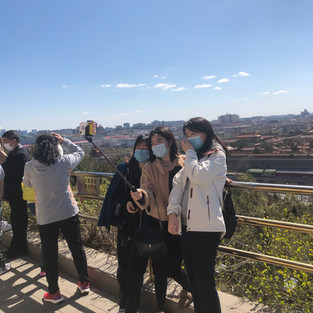As the COVID-19 crises enters week 12 in Beijing, government rules about quarantine, visa policies, rerouting, cancellation of flights and closing of borders have changed numerous times causing confusion among citizens. But one rule has remained constant.
At the beginning of the outbreak, the Beijing municipality issued a list of guidelines making it mandatory to wear masks in all public areas. Within days, face masks (which are a common household in Chinese homes) were virtually impossible to come by and while normal citizens tried to scramble together what they could find in small shops and pharmacies, the urgent need for masks and other protective gear for hospitals around China (and in particular Wuhan) rose. Despite most of the country being in lockdown, mask manufacturers had to go back to work and reached a maximum daily production capacity of 116 million units – versus 20 million per day before the COVID-19 outbreak. But even 116 million masks suffice for just over one tenth of China’s population.
Up until the end of March, Western medical experts agreed on the effectiveness of masks (both surgical and pollution masks) as protection from Coronavirus: They are only useful when donned properly and should only be used by healthcare workers or by people who are infected. Already back in January, the WHO warned that wearing a mask may create a false sense of security that can lead to neglecting other essential measures such as hand hygiene practices. But despite other warnings by experts like the U.S. Surgeon General, Beijing has never budged.
The city’s population of 25 million people is still met with omnipresent reminders to wear facemasks and it is not uncommon to be shouted at or even reported should one forget to wear a mask. On 27 March, the hashtag "Beijing writes mask-wearing into the law" began trending on Chinese social media but in reality what it means is that the municipal legislature is considering adding not covering your mouth in public when you’re sick to its permanent list of "uncivilized behaviours," – a list that includes spitting, smoking in non-smoking places, making excessive noise at sporting or cultural events and cutting the line.
But is reminding people to wear face masks – or threatening to make it mandatory long-term even necessary in China? The country has, like its east-Asian neighbor Japan, a long face mask wearing history. In the early 20th century, when the Spanish flu killed between 20 and 40 million people around the world, the Japanese started wearing masks in order to contain the spread of the virus and they have since become an integrated part of the culture in East Asia – and not only for medical reasons.
An article from Quartz offers a philosophical explanation. Korea, Japan and China are influenced by Taoism and “the health precepts of Traditional Chinese Medicine, in which breath and breathing are seen as a central element in good health”. So, protecting the body from viral infections that cause breathing difficulties seems like a normal thing to do.
The same article mentions the evolvement of masks into “social firewalls” that can provide anonymity and prevent harassment. This is especially the case in Japan where juvenile psycologists arguethat “the trend of wearing a mask to prevent directly dealing with other may have roots in the current youth culture in which many are more accustomed to communicating indirectly through email and social media.”
In East Asian cultures, face masks are also worn as a courtesy by people who are ill and in cities like Beijing that are battling air pollution, as protection against PM 2.5 particles.
In the west, on the other hand, wearing masks when healthy is generally discouraged and often frowned upon and in analysing different societal and cultural paradigms of mask use, The Lancet journal concludes that “the contrast between face mask use as hygienic practice (ie, in many Asian countries) or as something only people who are unwell do (ie, in European and North American countries) has induced stigmatisation and racial aggravations [..])”.
But could that stigmatisation be a thing of the past? On 3 April, the US Centers for Disease Control and Prevention suddenly recommended that Americans wear cloth masks such as scarfs and bandanas. "Some kind of mask is better than no mask" seems to be the new line.
Although things are, by no means, like before in Beijing, the city is moving towards some kind of normalcy. Should that mean relaxing the regulations on mask-wearing, the question is whether people will want to stop wearing masks. Much like daytime headlights in Northern Europe serve as constant warning of danger in traffic, mask-clad faces wherever one turns can serve as a reminder that we are in the middle of a pandemic.
My take: From a personal perspective, I would be very reluctant to stop wearing masks. They are now an integrated part of our daily lives here in Beijing. A reminder that we're not out of the woods yet and a physical barrier that prevents us from touching our faces all the time. For the same reason, we have sent masks to our family in Italy and to our son in the US - and offered to send them to my elderly parents in Denmark.












Comments